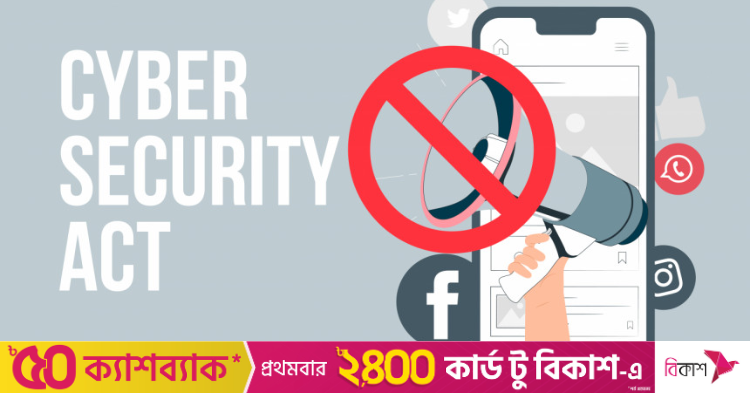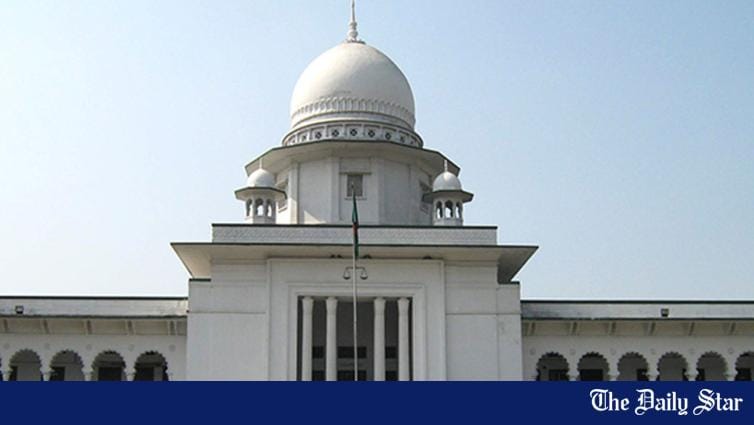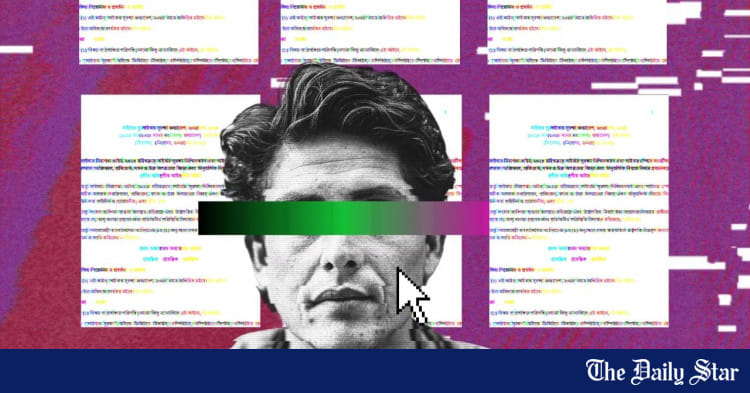Saif
Senior Member
- Joined
- Jan 24, 2024
- Messages
- 17,130
- Likes
- 8,163
- Nation

- Residence

- Axis Group

Date of Event:
Nov 6, 2024
A victory for free expression
We support the interim govt’s decision to repeal the CSA

Visual: Star
The information adviser to the interim government, Nahid Islam, has said that the Cyber Security Act (CSA)—which replaced the draconian Digital Security Act (DSA) but retained its controversial aspects—will be repealed within a week. And we fully endorse this decision by the interim government. Additionally, adviser Nahid said that all cases under the act will be withdrawn, which we hope includes all cases filed after August 5 as well.
The CSA—like the DSA before it, and the draconian sections of the Information and Communication Technology (ICT) Act of 2006—is a perfect example of a bad law. The definitions of crimes under it were vague, and the punishments for them were extremely severe—more so than some of the worst crimes one could commit. This made it obvious from the very outset that the law was framed to suppress dissent, rather than prevent cybercrimes, as the former regime propagated was its purpose. And that is exactly how it was used.
According to data collected by the Centre for Governance Studies between October 2018 and August 2022, a total of 1,109 cases were filed under the DSA against 2,889 individuals. And we saw time and again the accused being held in custody and effectively being punished before trial, even if the investigation report was not given within the stipulated 75 days. Politicians belonging to opposition parties and journalists ranked the highest in terms of those who were accused under the law, with ruling party affiliates specifically being the largest group of people prosecuting journalists.
That being the case, ordinary citizens were also not spared from its wrath, as the law was largely used to suppress any and all dissent against the former autocratic government. During the regime's tenure, we saw journalists and dissenters being picked up in the middle of the night and disappeared, and the CSA (and DSA before that) being used to provide a veneer of legality for their human rights being violated—as the law was frequently used to file cases against them afterwards. In fact, there have even been cases of people who were accused under the law dying while in custody of security forces. All these tactics were ultimately used to instil fear in society, so that no one dared to speak out against the regime's crimes, corruption, and misrule.
This environment of fear and the suppression of free expression formed two of the most important pillars of the Awami League's fascistic rule. And we hope, going forward, such a law will never again be framed or passed. We can see from our independence struggle, as well as from the 2024 mass uprising, the importance of freedom of expression, which is explicitly tied to freedom of thought, democracy, and the people's right to know. Therefore, if we are to truly establish a democratic country, we must hold onto our freedom of expression, and establish it as a core value in society—and no law should ever force us to compromise on that again.
We support the interim govt’s decision to repeal the CSA
Visual: Star
The information adviser to the interim government, Nahid Islam, has said that the Cyber Security Act (CSA)—which replaced the draconian Digital Security Act (DSA) but retained its controversial aspects—will be repealed within a week. And we fully endorse this decision by the interim government. Additionally, adviser Nahid said that all cases under the act will be withdrawn, which we hope includes all cases filed after August 5 as well.
The CSA—like the DSA before it, and the draconian sections of the Information and Communication Technology (ICT) Act of 2006—is a perfect example of a bad law. The definitions of crimes under it were vague, and the punishments for them were extremely severe—more so than some of the worst crimes one could commit. This made it obvious from the very outset that the law was framed to suppress dissent, rather than prevent cybercrimes, as the former regime propagated was its purpose. And that is exactly how it was used.
According to data collected by the Centre for Governance Studies between October 2018 and August 2022, a total of 1,109 cases were filed under the DSA against 2,889 individuals. And we saw time and again the accused being held in custody and effectively being punished before trial, even if the investigation report was not given within the stipulated 75 days. Politicians belonging to opposition parties and journalists ranked the highest in terms of those who were accused under the law, with ruling party affiliates specifically being the largest group of people prosecuting journalists.
That being the case, ordinary citizens were also not spared from its wrath, as the law was largely used to suppress any and all dissent against the former autocratic government. During the regime's tenure, we saw journalists and dissenters being picked up in the middle of the night and disappeared, and the CSA (and DSA before that) being used to provide a veneer of legality for their human rights being violated—as the law was frequently used to file cases against them afterwards. In fact, there have even been cases of people who were accused under the law dying while in custody of security forces. All these tactics were ultimately used to instil fear in society, so that no one dared to speak out against the regime's crimes, corruption, and misrule.
This environment of fear and the suppression of free expression formed two of the most important pillars of the Awami League's fascistic rule. And we hope, going forward, such a law will never again be framed or passed. We can see from our independence struggle, as well as from the 2024 mass uprising, the importance of freedom of expression, which is explicitly tied to freedom of thought, democracy, and the people's right to know. Therefore, if we are to truly establish a democratic country, we must hold onto our freedom of expression, and establish it as a core value in society—and no law should ever force us to compromise on that again.








































